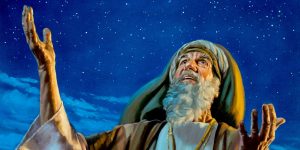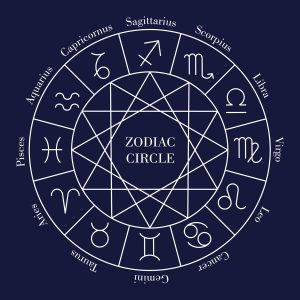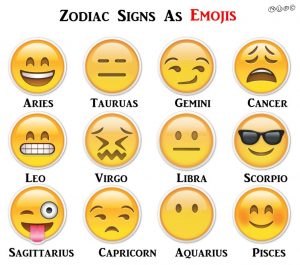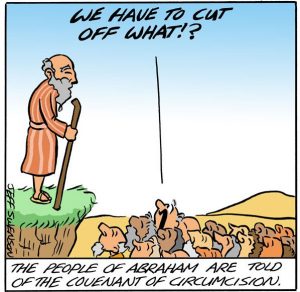Lech Lecha 2018: First Man In Space
by devadmin | October 18, 2018 9:15 pm
First Man in Space:
Who was the first human being in space? Who was the first stargazer? According to the World Almanac which the Oisvorfer consulted, a Russian by the name of Yuri Gagarin was the first to orbit space. That was back on April 12, 1961. A few weeks later, Alan B. Shepard, Jr. was the first American in space, and on February 20, 1962, John Glen, was the first American to orbit space and gaze at the stars. He made three orbits. And since we’re talking space, let’s also shout out Neil Armstrong, Michael Collins, and Buzz Aldrin, Jr., the first astronauts to land on the moon on July 20, 1969. The Oisvorfer recalls with clarity being in summer camp that July day watching Eli Singer and Sholom Duchman schlep chairs into the Camp Adas Yereim dining room where the entire camp huddled around a rather smallish black and white TV to watch the historic moon landing. Incidentally, “First Man” a movie just out about the historic event, is getting rave reviews. Ober after reading what Rashi, the heylige Gemora and myriad medroshim have to say on this week’s parsha, one thing should be abundantly clear: neither the Russians, nor the Americans, were first in space. Who was? Has the Oisvorfer gone mishuga? Some say yes, ober keep on reading.
 What have star gazing and outer space orbiting to do with this week’s parsha of Lech Lecho which features Avrom, later in the parsha to be renamed Avrohom, his wife Sorai, she later to be renamed Soro, Loit about whom we will read more next week, and a number of other side stories including lying, deception, family feuds -the first of many between an uncle and his nephew, Paroy’s boudoir, a war among four and five kings, and myriad other historical facts? Let’s find out.
What have star gazing and outer space orbiting to do with this week’s parsha of Lech Lecho which features Avrom, later in the parsha to be renamed Avrohom, his wife Sorai, she later to be renamed Soro, Loit about whom we will read more next week, and a number of other side stories including lying, deception, family feuds -the first of many between an uncle and his nephew, Paroy’s boudoir, a war among four and five kings, and myriad other historical facts? Let’s find out.
Ober before we do, let’s introduce a second theme for the week: let’s introduce mazel, also known as good luck. Is there a Jewish person -no matter his or her level of observance -from zero to 100- who is not familiar with the song ‘siman tov, u’mazel tov, yihay lonu ulichol yisroel omen?’ Mistama not. This song is ubiquitous. The words -wishing a good sign and luck to ourselves and to all the children of Israel- are heard repeatedly at the news of a baby being born, at a bris, birthday, bar & bat mitzvahs, engagement, wedding , divorce, graduation, getting a new job, car, iPhone, and so many other times and places. Ober what are we singing? We wish each other good luck so many times daily in our lives, ober what does this mean? Is there a concept of mazel? Do stars need to be aligned for one to be the beneficiary of good luck? Is that how it works? What is the Jewish view on mazel? Does mazel play a role in our lives? Is it related to our parsha?
Did you know that certain Chasidim, Chabad and Satmars among them, do not make Kiddush on Friday nights (after shul of course) between the hours of 6 and 7 pm because that time slot is considered bad luck? As an aside, this very concept is also mentioned in the Ohr Hachaim. Is there really bad mazel (luck) looming in the air between 6 and 7pm on Friday nights? Who controls this bad luck? Is there a bad luck angel or devil? What’s pshat here? Says the Ba’air Heytev in his commentary on the Shulchan Oruch (Code of Jewish Law) that indeed the time slot between 6pm and 7pm on Friday nights, is under the mazel (zodiac) of Madim (seemingly the red planet of Mars) and is directed by the angel known as Samale, he, a prosecutorial and punishing kind of angel. Not a good guy. Well, blow me down! He goes one to say that after 7pm, the shift changes and a good angel by the name of Tzadkiale takes over. Is that a real concept? Are there angels associated with different zodiacs and time periods? How do these concepts affect us? And how does that square up with the heylige Gemora (Shabbis 156A) which tells us “eyn mazal li’yisroale” (there is no such concept of mazel: it does not affect the Yiddin)? Are our wishes of good luck and mazel tov for naught? Yikes!
Noch a kasha (yet another question): do Yiddin believe in horoscopes? Shoin so many dizzying questions; has the Oisvorfer spaced out? In order to chap the Oisvorfer’s introductory comments about outer space and then to connect those to mazal (good luck), stars, and the horoscope, and to then tie all these concepts into parshas Lech Lecho, which we will be reviewing this year for the ninth time, we need to learn a few pisukim of this week’s parsha innaveynig. Says the heylige Toirah (Bereishis 15: 1-5, azoy):
| 1. After these incidents, the word of the Lord came to Abram in a vision, saying, “Fear not, Abram; I am your Shield; your reward is exceedingly great.”
|
אאַחַ֣ר | הַדְּבָרִ֣ים הָאֵ֗לֶּה הָיָ֤ה דְבַר־יְהֹוָה֙ אֶל־אַבְרָ֔ם בַּמַּֽחֲזֶ֖ה לֵאמֹ֑ר אַל־תִּירָ֣א אַבְרָ֗ם אָֽנֹכִי֙ מָגֵ֣ן לָ֔ךְ שְׂכָֽרְךָ֖ הַרְבֵּ֥ה מְאֹֽד: | |
| 2. And Abram said, “O Lord G-d, what will You give me, since I am going childless, and the steward of my household is Eliezer of Damascus?”
|
בוַיֹּ֣אמֶר אַבְרָ֗ם אֲדֹנָ֤י יֱהֹוִה֙ מַה־תִּתֶּן־לִ֔י וְאָֽנֹכִ֖י הוֹלֵ֣ךְ עֲרִירִ֑י וּבֶן־מֶ֣שֶׁק בֵּיתִ֔י ה֖וּא דַּמֶּ֥שֶׂק אֱלִיעֶֽזֶר: | |
| 3. And Abram said, “Behold, You have given me no seed, and behold, one of my household will inherit me.”
|
גוַיֹּ֣אמֶר אַבְרָ֔ם הֵ֣ן לִ֔י לֹ֥א נָתַ֖תָּה זָ֑רַע וְהִנֵּ֥ה בֶן־בֵּיתִ֖י יוֹרֵ֥שׁ אֹתִֽי: | |
| 4. And behold, the word of the Lord came to him, saying, “This one will not inherit you, but the one who will spring from your innards-he will inherit you.”
|
דוְהִנֵּ֨ה דְבַר־יְהֹוָ֤ה אֵלָיו֙ לֵאמֹ֔ר לֹ֥א יִירָֽשְׁךָ֖ זֶ֑ה כִּי־אִם֙ אֲשֶׁ֣ר יֵצֵ֣א מִמֵּעֶ֔יךָ ה֖וּא יִֽירָשֶֽׁךָ: | |
| 5. And He took him outside, and He said, “Please look heavenward and count the stars, if you are able to count them.” And He said to him, “So will be your seed.” | הוַיּוֹצֵ֨א אֹת֜וֹ הַח֗וּצָה וַיֹּ֨אמֶר֙ הַבֶּט־נָ֣א הַשָּׁמַ֔יְמָה וּסְפֹר֙ הַכּ֣וֹכָבִ֔ים אִם־תּוּכַ֖ל לִסְפֹּ֣ר אֹתָ֑ם וַיֹּ֣אמֶר ל֔וֹ כֹּ֥ה יִֽהְיֶ֖ה זַרְעֶֽךָ: |
Let’s review: bikitzur (in short), Avrom was the recipient of a vision during which he was engaged in conversation with the RBSO. The RBSO assured Avrom that He will protect and reward him greatly. Let’s recall that Avrom was the first monotheist, he believed that only the RBSO controls all that goes on in the world. Also in space. Ober, Avrom laments his loneliness and that he and his wife Sorai are childless. He is concerned that the administrator of his household is his servant Eliezer of Damascus. The RBSO answers Avrom and tells him not worry: this person Eliezer will not inherit you. Instead, your inheritor will be someone produced by your body. And then to emphasize the point, the RBSO took Avrom outside and told him to look toward the heavens and to count the stars, if possible. In other words: Avrom’s children will -one day- be so numerous, they will be uncountable. The vision ended with Avrom stating that he believed what the RBSO had told him.
 Avada you all recall, or should, that at some point in the marriage, and in our parsha, Sorai, recognizing that she was barren, instructed her husband to come upon (have relations with) Hogor, she the maidservant to Sorai. Shoin, what happened when a nice man like Avrom came upon Hogor the shiksa? A pregnancy, followed by a baby who would be named Yishmoel who is the father of all our Arab cousins. How then could Avrom tell the RBSO that he is childless? Ober answers the RambaN, a very logical thinker, azoy: though Avrom may have been an expert astrologer and so says the Yalkut, ober Avrom could not possibly have complained to the RBSO about being childless. Instead what Avrom did see in the stars, was that he would not have a child who would inherit him, and that is what he expressed to the RBSO. For reasons only the RBSO chaps, it was ordained that Yishmoel would not inherit Avrom’s estate. Shoin. Let’s get back to Avrom’s conversation with the RBSO. What was meant by the RBSO’s words in verse five wherein the RBSO took Avrom outside?
Avada you all recall, or should, that at some point in the marriage, and in our parsha, Sorai, recognizing that she was barren, instructed her husband to come upon (have relations with) Hogor, she the maidservant to Sorai. Shoin, what happened when a nice man like Avrom came upon Hogor the shiksa? A pregnancy, followed by a baby who would be named Yishmoel who is the father of all our Arab cousins. How then could Avrom tell the RBSO that he is childless? Ober answers the RambaN, a very logical thinker, azoy: though Avrom may have been an expert astrologer and so says the Yalkut, ober Avrom could not possibly have complained to the RBSO about being childless. Instead what Avrom did see in the stars, was that he would not have a child who would inherit him, and that is what he expressed to the RBSO. For reasons only the RBSO chaps, it was ordained that Yishmoel would not inherit Avrom’s estate. Shoin. Let’s get back to Avrom’s conversation with the RBSO. What was meant by the RBSO’s words in verse five wherein the RBSO took Avrom outside?
Says Rashi azoy: “according to the straightforward meaning (of the words), He (the RBSO) brought him -Avrom- out of his tent to look at the stars.” In other words, He took him outside so that Avrom could gaze up at the sky, see the stars and try counting them. “But according to the midrashic explanation, also offered by Rashi, He said to him, “leave your astrological calculations” that you have observed in the constellations wherein you saw that you are not destined to have a son.” He told Avrom: the stars you consulted, your horoscope, will have no influence over you. Avrom will taka not have a son, but Avrohom (after a name change, in reality but an elongation of his name to Avrohom), will have a son. Sorai will not give birth, but Soroh (after a name change), will. We will expound shortly. Seemingly the name change would take Avrom out from under the influence of the stars and zodiac and change his luck. Alternatively, the name change will override the zodiac and neutralize the stars. OMG!
 Rashi then offers another explanation: “He (the RBSO) took him outside the terrestrial atmosphere and lifted him above the stars, and thus the word HABATE (is used -see posik 5 above), indicating looking downward from above.” In other words, Avrom was up in space gazing -seemingly down- at the stars. Bottom line: Based on this medrish, Avrom was indeed the first person to have explored space and the stars. Gishmak!
Rashi then offers another explanation: “He (the RBSO) took him outside the terrestrial atmosphere and lifted him above the stars, and thus the word HABATE (is used -see posik 5 above), indicating looking downward from above.” In other words, Avrom was up in space gazing -seemingly down- at the stars. Bottom line: Based on this medrish, Avrom was indeed the first person to have explored space and the stars. Gishmak!
Ober, asks the medrish azoy: why did the RBSO need to take Avrom outside? Is there any indication that Avrom was inside and needed to be taken out? Said Reb Yihoishua of Sinchnin, azoy: Did the RBSO literally take Avrom out of this world and that’s why the posik states that He took him out? Rather, it must mean that the RBSO showed Avrom the pathways of the heavens. In other words: while standing firmly on the ground, the RBSO showed him the pathways. Ober says Rebbe Yehudah in the name of Reb Yoichonon that pshat is azoy: the RBSO raised Avrom above the dome of the sky and that’s taka why the RBSO instructed Avrom to look, to gaze downwards from above. Avrom was not just in space, he was above the firmament and able to gaze down at the stars. Yet another medrish (Maharzu) tells us that of course Reb Yehuda is not speaking literally. Which was it? Ver veyst?
Wait, there’s more, yet another interpretation of what took place. Our sages said that the conversation between the RBSO and Avrom went like this: the RBSO was saying to Avrom “you are a prophet, you are not an astrologer.” Was Avrohom an astrologer? And the RBSO took Avrom and lifted him above the stars? Seemingly what went down according to the medrish is this: Avrom said to the RBSO that he had seen his horoscope, he had seen in the stars that he was not destined to have a child with his wife Sorai. In response the RBSO said: stick to what you do best: you are a prophet, ober you are not an astrologer. Stay away from star gazing. In any event, by lifting Avrom above the stars, He indicated that Avrom (after a name change) would not be subject to astrology or the zodiac. He was above the fray, and under the guidance of the RBSO who told him that it’s taka true that Avrom and Sorai will not have children together. Ober, once I (the RBSO) change your names, yours to Avrohom, hers to Soro, you can and will have a child together. Mamish gishmak.
Ober, does the zodiac have real powers? Does it control luck? Is there, among the Yiddin, a concept of luck? Says the heylige Gemora (Nedorim 32b), azoy: “eyn mazal liyisroale” (there is no mazel for the Jewish people). And the Gemora says this with such certitude based on what? From the very conversation Avrom had with the RBSO. Avrom, during his vision, told the RBSO that he had seen the astrological stars and they indicated that he and his wife Sorai would remain childless. In response, the RBSO told Avrom to go out of his astrological comfort zone, that he was not an astrologer. And the Gemora concludes that the Jewish people are not subject to celestial signs. Yiddin seemingly can -through certain acts as more fully delineated below- change what the stars have decreed. What about the goyim (gentiles)? The Gemora only tells us that the Yiddin are not subject to the zodiac, the celestial signs are not conclusive and zicher not definitive. They cannot foretell the future. A footnote found in the heylige Gemora on this subject tells us that the umois ho’oilom (gentiles) are indeed subject to various astrological signs which can foretell their future.
 Ober, efsher you’re klerring azoy? If the Yiddin are indeed above mazel, meaning they transcend it, why do certain Chassidim avoid making kiddish between 6 and 7pm on Friday nights? Why are they afraid of the mazel known as Madim (the red planet of Mars) and its prosecuting angel? Curious as I was, earlier this week, while researching this topic, I asked a Chabad rabbi this very question. His answer while towing the Toirah line was “eyn mazel liyisroel,” the Yiddin are not subject to mazel. “That being said, why don’t you make kiddish,” I asked again? We don’t want to upset the angel in charge during the 6-7pm slot. How do these two concepts square up? They don’t. He did add this. A number chasiddim do make kiddush but not on red wine. They use white wine instead. The red wine, while otherwise declared healthy during a meal -dry wine only- is the culprit. The mazel madim represents the color red which is associated with blood. What does he do? He avoids wine and makes kiddush between 6 and 7pm on challah. Givaldig and emes!
Ober, efsher you’re klerring azoy? If the Yiddin are indeed above mazel, meaning they transcend it, why do certain Chassidim avoid making kiddish between 6 and 7pm on Friday nights? Why are they afraid of the mazel known as Madim (the red planet of Mars) and its prosecuting angel? Curious as I was, earlier this week, while researching this topic, I asked a Chabad rabbi this very question. His answer while towing the Toirah line was “eyn mazel liyisroel,” the Yiddin are not subject to mazel. “That being said, why don’t you make kiddish,” I asked again? We don’t want to upset the angel in charge during the 6-7pm slot. How do these two concepts square up? They don’t. He did add this. A number chasiddim do make kiddush but not on red wine. They use white wine instead. The red wine, while otherwise declared healthy during a meal -dry wine only- is the culprit. The mazel madim represents the color red which is associated with blood. What does he do? He avoids wine and makes kiddush between 6 and 7pm on challah. Givaldig and emes!
And the question is azoy: may we or may we not believe in mazel? Should chasiddim avoid making kiddish between 6 and 7pm because of potential bad mazel? Is there mazel or not?. Says the Rambam: the heylige Toirah’s objections to magic and divination, also extend to astrology. And says the Shulchan Oruch (Yore Deah 179.1), azoy: one must not inquire of the astrologers and not consult lots. Settled? On the other hand, other authorities while advising against consulting astrologers, do believe that astrology play a role, and can be accurate when read by experts. And the bottom line? Though the heylige Gemora delves deep into mazel, the zodiac, and the powers of each, down to the hour of the day, that’s only for goyim. As to Yiddin, they conclude that there is no mazel. Neither planets or stars can influence what happens to Yiddin. Ober what to if your luck is bad? Can you as a Yid change your mazel, your destiny?
Says the heylige Gemora (Rosh Hashono 16B), azoy: Said Reb Yitzchok (not the Oisvorfer): four things cause an unfavorable decree against a person to be torn up. These are: charity, crying out, change of name, and change of location. Of course he provides proof texts to support each of these. The heylige Gemora cites a fifth possible way to overturn an evil decree: …”and some say, also a change of place (change of location).” Avada we can all chap why and how repentance, prayer and charity might work. Efsher you’re wondering azoy: how does a name change, or change of location help change a decree, or turn bad luck into good luck? Are you? Says the Rambam: by changing one’s name, the sinner in effect declares: I am a new person. I am not the same person who did those evil deeds. Gishmak. And location? That is learned from our very parsha where Avrom was told to leave his land, his city, his place of birth and that the ROBS will bless him. Seemingly, he needed a fresh start in a new location. After many years of being barren, Avrom fathered Ishmael and then after his bris, and at the tender age of 100, also Yitzchok. Seemingly, while his name was too short and needed lengthening, his member was efsher too long.
 The bottom line: it’s good to have good mazel. Very good! If your mazel is bad, try one of the above mentioned remedies. If they don’t work, try again.
The bottom line: it’s good to have good mazel. Very good! If your mazel is bad, try one of the above mentioned remedies. If they don’t work, try again.
And we close with this myseh (story): The mazel and brain decided to go out on a two day camping trip. As the sun set and evening arrived, it was decided to lay down for the night and resume in the morning. Ober, where to rest? Said the brain: I will lie down off the main road, under a tree, just in case a car or truck comes barreling down. Said the mazel: I will lie down right here in the middle of the road; neither cars, nor trucks ever come down this road. Said the brain: are you mishuga? This road, though mostly desolate, can still see some occasional traffic, and by lying down in the middle of the road, you are putting your life in danger. Responded the mazel: no problem for me; I have mazel. Shoin! the mazel pulled out his sleeping bag and set himself up right in the middle of the road. The brain set his sleeping bag just off the road, safe and secure and away from danger.
Shoin: thirty minutes later, an 18 wheeler comes barreling down the road. At the very last moment, the driver sees something lying in the middle of the road. At the last possible second, in an effort to avoid hitting it, the driver cuts his wheels sharply, avoids hitting the mazel, and runs over the brain who was off on the side of the road. Bottom line: brain was dead! Nu, when it comes to mazel, I close by paraphrasing the words of Paul Reichmann of Olympia and York, quoted in Business Week over 30 years ago, who in response to a question posed about his success answered azoy: I attribute 95% of my successes to mazel, and 5% to brains. Given the choice I would gladly trade the last 5% for more mazel.
Bottom line: it does appear that our sages, the rabbis of the heylige Gemora and other exegetes, all believed in mazal, luck. They also believe that the Yiddin are above mazel, that us Yiddin can, through actions we take, affect our mazel. We’re done for this week: mazel tov!
A gittin Shabbis-
The Heylige Oisvorfer Ruv
Yitz Grossman
Source URL: https://oisvorfer.com/lech-lecha-2018-first-man-in-space/
